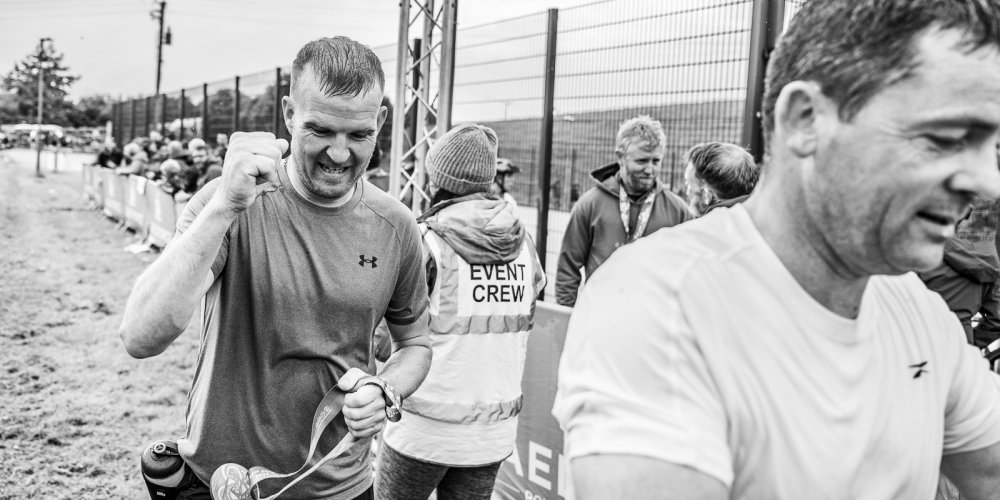You’ve become faster, fitter, stronger. You’re training hard and eating well, you know what to do and what not to do…but somehow you have plateaued. If your training has become a bit jaded, here are a few of our favourite tips to have you beating the clock and moving up a grade once more.
Long term goal, short term targets
Firstly, it is important to recognise that you are only human. You will find over the course of the year that your performance will naturally fluctuate. Try to recognize your natural fluctuations so that you can time them and ensure that a peak coincides with a big event.
One way that you can do this is to work towards a number of short term goals over the course of several months. Your performance during these events is not necessarily important; it is more about keeping active, providing an engaging level of variety and above all, having fun. As the big event nears, these short term goals can become more serious, and you step up the training in order to hit your peak at the right time.
Take the stairs
You may be training a few times a week and heading out at the weekend, but the chances are that like the majority of people, your time is spent being relatively inactive at work. There are many simple things like using the stairs rather than the lift, or going out for a walk at lunch that can add towards a more active lifestyle. It may feel minimal, but the more active you are, the better. There is even a school of thought that focuses on this intriguing form of exercise and has coined it; Non-Exercise Activity Thermogenesis (NEAT).
NEAT treats every physical movement done throughout the day as a valuable source of exercise. Typing on the keyboard, fidgeting in your seat, walking to the train station; these are all part of your NEAT workout. If you can consciously increase your NEAT movements then the accumulation of these actions can increase the amount of burnt calories and is considered exercise. Although fidgeting in your seat is unlikely to raise your personal best, it does highlight the value of a consistently active lifestyle, as opposed to a stop-start approach.
Get comfortable with good kit
When we feel comfortable we are free to concentrate on really pushing ourselves. If you are feeling trapped inside sweaty clothes or wincing in pain as bad footwear rubs and chafes, you won’t be able to focus on performance and enjoying the moment.
Good kit can keep you out for longer, help you have a more enjoyable time and reduce the risk of injury. All of which can accumulate to give you the edge when it comes to the big day. And if the right kit can make you feel good then it begins a positive cycle that will have you training even when the weather and season make it more challenging
Diversify your sports
To achieve your best, you need to put in the hours. Practice does make perfect and there is no substitute to going out and refining your skills. But it is possible to get too much of a good thing and there comes a tipping point where tirelessly repeating the same activity can over-train certain muscles and leave you vulnerable to injury.
Try to treat your training as a varied process in which key elements of your performance can be refined without actually doing that specific activity. If you are a runner or cyclist, swimming will complement your training brilliantly. It’s low impact and is great for cardio. Or how about stamina focused weight training for improving strength. The buzz word here is diversification.
Work your weaknesses
If you really want to improve you need to ruthlessly work your weaknesses. Your performance will only ever be as good as your weakest element so stop practicing the stuff you are good at; it’s time to get nasty. Avoiding a particular hill during your run? Guess what, you and that hill are going to get to know each other very well. The point here is relatively simple, if you really want to get better at something; you have to focus on the stuff you are bad at. It may be demoralizing at first, but it is a surefire way to improve.
Do your homework
Recovering during rest days actually forms part of your training routine, so during those afternoons when you can legitimately absorb into the sofa, why not do a bit of additional research? Topical websites and magazines are a great way to get inspired about your sport and reading about the world’s elite is guaranteed to get you eyeing your kit, ready for your next outing.
No matter how hard you train, many of us are never going to reach the lofty heights of the professionals and that is absolutely fine. The important thing is to be passionate about it and to have fun. That way training hard becomes enjoyable and your elusive personal best is no longer a time, but simply the great feeling of doing the best you can personally do.
Back

